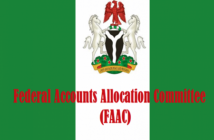The Nigeria Employers’ Consultative Association (NECA) has called on the Federal Government to address the fundamental challenges of smuggling and insecurity in the country.
Its Director-General, Mr Timothy Olawale, made the call on Monday in Lagos while reacting to the recent announcement to extend the closure of the country’s land borders, closed on Aug. 20 to Jan. 31, 2020.
The News Agency of Nigeria (NAN) reports that President Muhammadu Buhari had approved the extension of the ongoing closure of Nigeria’s borders till Jan. 31, 2020.
The directive was announced in a memo signed and dated Nov.1, 2019 by the Comptroller of Customs in charge of Enforcement, Investigation and Inspectorate.
Olawale urged the government to take broader look at the fundamentals of its assumptions that led to the decision to close the borders.
He also urged government not to stifle legitimate businesses because of the inefficiency of the customs service to keep the borders safe.
“If the borders are safe and government enforces the bilateral and multilateral agreements it had signed with other countries, there will not be need to close the borders.
“Efforts should be stepped up to equip the customs to live up to its responsibilities of protecting the borders and nip smuggling in the bud, ” he said.
The NECA official also urged government to ensure that the citizens’ welfare and business prosperity are not be sacrificed due the inefficiency in our border policing.
According to him, coordination of fiscal policies should be geared toward enterprise competitiveness, job creation and alleviating poverty against impoverishing the people by such policies of government.
“Despite the many merits that come with the border-closure, we are concerned that the policy comes without any palliative for legitimate local businesses which negate the attempts at alleviating poverty and reduce unemployment.
“The continuous closure also possesses the capacity to render many Nigerians jobless and hungry.
“The policy was more consistent with income generation and not in agreement with the harsh effect it has on households, businesses and investors’ confidence in general.
“Since the advent of this policy, prices of goods, especially food items had increased tremendously, further making the average Nigerian vulnerable as 70 per cent of poor households budget is spent on food.
“Government’s fiscal and monetary policies should focus on sustainable enterprise, job creation and rapid economic development premised on wide-range consultation with critical stakeholders, ” Olawale said. (NAN)




